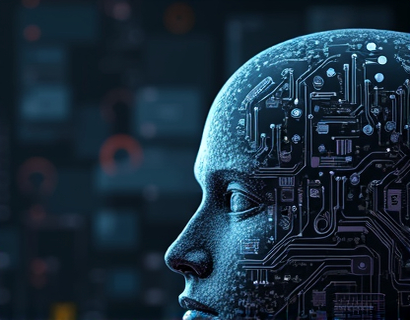Transforming Access to Specialized Social Services Information with AI-Powered Chat Interfaces
In an era where information is abundant yet often overwhelming, the need for a reliable and educational resource for specialized social services information has become paramount. The introduction of AI-powered chat interfaces represents a significant leap forward in making this information accessible, safe, and understandable for a diverse audience. This article delves into how these advanced chat platforms are revolutionizing the way individuals, including adults, students, and young learners, interact with and gain knowledge about social services.
The Importance of Specialized Social Services Information
Social services play a crucial role in supporting individuals and communities, offering a range of services from mental health support to legal assistance and educational programs. For many, navigating these services can be daunting due to the complexity and specialized nature of the information required. An AI-powered chat interface addresses this challenge by providing a user-friendly platform that simplifies access to verified and educational content, ensuring users receive accurate and relevant information.
How AI-Powered Chat Interfaces Work
These chat interfaces leverage cutting-edge artificial intelligence to understand and respond to user queries in real-time. By employing natural language processing, the AI can interpret the nuances of human language, allowing for a more natural and intuitive interaction. Users can ask questions, seek explanations, and receive detailed responses that are tailored to their specific needs and level of understanding.
The AI is trained on a vast dataset of verified information from reputable sources, ensuring that the content provided is not only comprehensive but also accurate. This training process involves continuous learning and updates, allowing the chat interface to stay current with the latest developments in the social services industry.
Benefits for Diverse User Groups
One of the most significant advantages of AI-powered chat interfaces is their ability to cater to a wide range of users. For adults seeking information on social services, these platforms offer a convenient and efficient way to find answers to complex questions. Whether it's understanding eligibility criteria for a particular program or navigating the application process, the chat interface provides step-by-step guidance and support.
For students and young learners, the interface is designed to be both educational and safe. Content is tailored to their level of understanding, using clear and simple language. This not only helps in building their knowledge but also fosters a deeper understanding of the social services system. The child-friendly version ensures that young users can explore these topics without encountering inappropriate or complex information.
Ensuring Safety and Educational Value
Safety is a top priority in the design and implementation of these chat interfaces. The content is rigorously vetted to ensure it meets high standards of accuracy and appropriateness. This is particularly important for young users, who may be more vulnerable to misinformation. The AI is programmed to avoid any content that could be harmful or inappropriate, creating a secure environment for learning and exploration.
Moreover, the educational value of these platforms cannot be overstated. By providing detailed and well-structured information, users gain a comprehensive understanding of social services. This knowledge empowers them to make informed decisions and take proactive steps in seeking the help they need. The chat interface serves as a valuable resource for schools, community centers, and other organizations aiming to educate their members about available social services.
Navigating Essential Resources with Ease
The intuitive design of AI-powered chat interfaces simplifies navigation to essential resources. Users can easily find information on various topics, such as mental health services, legal aid, housing assistance, and more. The chat interface acts as a guide, leading users through a logical and user-friendly path to the information they need.
For instance, if a user is looking for information on child protection services, the AI can provide a summary of available resources, eligibility criteria, and contact details. The interface can also offer links to official websites, downloadable guides, and other relevant materials, ensuring a comprehensive and well-rounded resource experience.
Fostering Informed Decision-Making
One of the key goals of these chat interfaces is to foster informed decision-making among users. By providing verified and educational content, individuals can better understand their options and the implications of different choices. This is particularly important in areas like healthcare and social welfare, where the right information can lead to better outcomes and improved quality of life.
The AI can also help users evaluate different service providers, considering factors such as reputation, reviews, and specific services offered. This level of detail empowers users to make choices that align with their needs and preferences, ultimately leading to more effective and satisfying experiences with social services.
Supporting Specialized Knowledge
For professionals and individuals involved in the social services industry, these chat interfaces offer a wealth of specialized knowledge. The AI can provide insights into best practices, recent research findings, and policy updates. This continuous flow of information helps keep users informed and up-to-date with the latest trends and developments in the field.
Additionally, the chat interface can serve as a tool for ongoing education and professional development. Users can engage in discussions, ask questions, and receive expert responses, creating a dynamic and interactive learning environment. This is particularly beneficial for social workers, counselors, and other professionals who rely on accurate and current information to provide the best possible support to their clients.
Enhancing Accessibility and Inclusivity
Accessibility is a critical aspect of these AI-powered chat interfaces. The platforms are designed to be inclusive, catering to users with diverse needs and abilities. For example, the chat interface can support multiple languages, making the information accessible to non-native speakers. It can also accommodate users with disabilities, ensuring that the content is accessible through various devices and assistive technologies.
Furthermore, the child-friendly version of the interface ensures that young users have a safe and engaging way to learn about social services. This inclusivity helps break down barriers and ensures that everyone, regardless of their background or abilities, can benefit from the resources provided.
Case Studies and Real-World Applications
Several organizations have already implemented AI-powered chat interfaces with remarkable success. For example, a community health center used such a platform to provide patients with information on available health services, appointment scheduling, and health education. The result was a significant increase in patient engagement and satisfaction, as well as a reduction in the time spent by staff handling routine inquiries.
In another instance, a educational institution integrated the chat interface into its student support services. Students could easily access information on academic resources, counseling services, and financial aid. The positive feedback from both students and staff highlighted the interface's effectiveness in enhancing the overall educational experience.
Challenges and Future Directions
While AI-powered chat interfaces offer numerous benefits, there are still challenges to address. One key challenge is ensuring the continuous accuracy and relevance of the information provided. This requires ongoing updates and maintenance of the underlying datasets. Additionally, there is a need to balance the level of detail provided, ensuring that the information is neither too simplistic for adults nor too complex for young users.
Looking ahead, the integration of more advanced AI features, such as emotional intelligence and personalized recommendations, could further enhance the user experience. The potential for these chat interfaces to evolve and adapt to user needs is vast, promising even more innovative and effective solutions in the future.
Conclusion
AI-powered chat interfaces represent a transformative approach to accessing specialized social services information. By providing verified, educational, and user-friendly content, these platforms empower individuals to make informed decisions and engage more effectively with essential resources. Whether for adults, students, or young learners, these interfaces offer a safe and valuable tool for navigating the complex world of social services. As technology continues to advance, the potential for these chat interfaces to make a positive impact on society is immense.











































